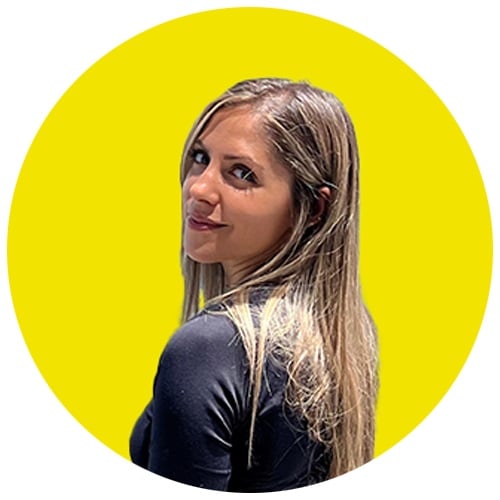The Critical Role of a Pharmacovigilance Specialist: Safeguarding Public Health
Culture and Values

Culture and Values
Pharmaceutical companies play a fundamental role in helping patients and communities, so this rapidly growing industry offers many opportunities for a fulfilling career. We spoke with Brunel specialist Claudine about her impactful role as a pharmacovigilance specialist, her dedication to ensuring the utmost care and vigilance for every patient, and her passion for advocating inclusivity and gender diversity in the pharmaceutical sphere.

Pharmacovigilance Specialist
Claudine was born and raised in the French-speaking part of Belgium. She learned English during a two-year stay in New Zealand and completed her PharmD degree—a six-year programme for pharmacy doctoral studies—in Hungary. In 2019, she moved to Toronto, Canada, to join her Canadian husband.
Sure. Following years of experience as a pharmacist in my home country, I moved to Toronto and promptly secured a job as a Drug Safety Associate on receiving my work permit. I held that position for nearly two years. Towards the end of 2021, Brunel approached me with an enticing opportunity to transition into a role as a bilingual pharmacovigilance specialist at a multinational pharmaceutical company known for specialising in various areas, including pharmaceuticals, vaccines, consumer healthcare and healthcare products.
The primary reason behind my shift to Brunel was that I felt undervalued. I genuinely felt like I was just another number, and I longed for a supportive environment in which I could express concerns or simply vent. When I joined Brunel, I immediately discovered an inviting setting where everyone was encouraged to share their thoughts openly. Brunel’s HR department is truly exceptional: They genuinely listen and are readily available whenever you need them. I also cherish the flexibility of working from home in this role. Lastly, the inclusive atmosphere at Brunel is something I value, especially being surrounded by numerous inspiring women in my team, all of whom make it an exceptional workplace.
Our department primarily focuses on managing adverse events associated with our product line. When a patient encounters an adverse event following the use of our prescription drug, we initiate an investigation as soon as we receive the report. This often involves reaching out to healthcare professionals for additional insights. Moreover, we are responsible for regulatory duties, including the mandatory reporting of serious cases to Health Canada if we suspect a link to our product. In my day-to-day responsibilities, I handle a prescribed number of cases, typically ranging from 7 to 13 per day. That involves conducting thorough investigations into these incidents and determining whether further engagement with doctors is necessary. Additionally, part of my role entails crafting unique follow-up requests or letters tailored to specific cases and tied to particular products.
Ensuring patient well-being is our team's top priority, and that demands a personalised approach to each case, because each case is unique. Patients vary in age and medical history, prompting us to consider the complete context of their health. Our system enables meticulous tracking of individual patient histories, which helps us avoid repetitive inquiries and provides a comprehensive medical background. Minor events such as a rash at the injection site aren't categorised as major side-effects. However, for critical cases like pulmonary embolisms, I prepare letters addressed to the relevant healthcare professional and the patient's doctor. If I identify gaps in the file, I inquire about the patient's risk factors, genetic conditions or family history, ensuring thorough follow-up in every instance.

Claudine and her colleagues gathered for a Christmas lunch at the Brunel office in Etobicoke, western Toronto
You have to be able to work independently a lot of the time, but the role also includes occasional team meetings to discuss cases. Individuals must confidently contribute their thoughts in the team setting. In my experience working in Canada, it's crucial to embrace diverse cultures and backgrounds due to the country's cultural mosaic, so you have to be willing to learn and share extensively with other team members. So, the ideal candidate will thrive both independently and collaboratively, navigating this diverse environment with ease, comfort and respect.
Absolutely! My passion for this field runs deep and I'm committed to staying in the pharmaceutical industry. I see myself actively participating in organisations that champion women in this sector, working towards inclusivity. Over the next decade, my aim is to witness increased female representation on corporate boards, reshaping the perception of pharmaceuticals as a male-dominated realm. I aspire to contribute to this change and, who knows, maybe even be one of those leaders myself.
Browse through our vacancies and apply now!